Gay cruising describes the act of searching about a public place in pursuit of a partner for sex. This activity has existed in England and Wales since at least the 17th century and has a colourful legal history. It differs from prostitution in that the parties involved do not seek money for sex, and from gay nightclubs or bathhouses in that they are not on private premises, although they may take place on private land to which the public have been granted access.
The history of gay cruising is sparsely documented, as the illegality of gay sex meant that those who used such cruising grounds were likely to be discreet about them. Rictor Norton, author of Mother Clap's Molly House (a reference to Margaret Clap), is one of the few historians to address the topic. He believes that the first gay cruising grounds and gay brothels in London may have sprung up in the early 17th century; theatres were sometimes denounced as such by moralists of the time.
So-called "cruising grounds" or "cruising sites", where gay and bisexual men meet at a public place to cruise for sex, originated in the late 1600s (from the earliest known records, although it most likely originated much earlier) and has continued to the present day. Cruising came about owing to the illegality of homosexual acts in the United Kingdom. Prior to the Sexual Offences Act 1967, this illegality meant that many gay men could not live openly as homosexuals. Cruising provided a way for gay men to solicit sexual encounters while minimizing the risk of being caught by the police. When cruising first became known, it usually took place in public fields, parks, toilets (or "cottages" as they would become known as in the 20th century). In more recent times, public lay-bys located either on or off main roads or rural roads have also become popular sites. Gay beat is an Australian term.
Before the 20th century, anal sex, whether conducted in public or private, was illegal under sodomy laws, including the Buggery Act set down by Henry VIII in 1533. The penalty for anal intercourse during most of this period was death; however, specific proof of successful anal penetration was required for this verdict to be brought. The lesser crime of "gross indecency" carried penalties including the pillory (as in the case of the Vere Street Coterie, who were arrested in a raid of a gay club in 1811), transportation and imprisonment.
The death penalty for anal sex was lifted in 1861. [1] An 1885 law prohibited "gross indecency", which included all erotic conduct between men. [2] Eventually, in 1967, some of the Wolfenden Report's recommendations of a decade earlier led to the decriminalisation of homosexual sex in private; no such legal privilege pertains to sex in public places, either for homosexual or heterosexual sex. [3] [4] Therefore, despite more tolerance in the law and society at large, gay men have continued to be at risk of prosecution for public sex.
A number of well known people have been arrested for sex in public places in England and Wales, including:
The playwright Joe Orton wrote in his posthumously published diaries of his regular cottaging, but he did not incur prosecution.
Norton (2007) lists a number of London cruising grounds during the Georgian era. These included St. James's Park, Moorfields, the public privies at Lincoln's Inn, and Smithfield prior to the Gordon Riots.
Hampstead Heath in north London has a long history of gay cruising, which was accompanied by police arrests and attacks. From the late 1990s, this evolved into minimal active policing, and support from gay sexual health organisations. [18] [19] During an interview on BBC News 24, the singer George Michael, who was allegedly caught cruising on Hampstead Heath by News of the World photographers, claimed that his cruising was de facto private because it occurred at 2am. [20] In 1992, Conservative MP Alan Amos resigned his parliamentary seat after he was found by the police "engaging in a homosexual act" on the Heath. [21]
Clapham Common in south London is well known for gay cruising. The Labour MP Ron Davies resigned from the government after national newspapers reported that he was attacked and robbed by a man whom he met on the Common. A number of homophobic attacks have occurred around the area, including the murder of Jody Dobrowski. [22] The gay-themed TV drama Clapham Junction was based around the lives of gay men in the area and included scenes of cruising and cottaging. [23]
The Sexual Offences Act 2003 prohibits all forms of sexual activity in a public lavatory, but has nothing to say about other forms of cruising. However, persons of any gender who engage in sexual intercourse in public can find themselves charged with offences under the Public Order Act 1986, if the police have sufficient evidence to convince a court of law that the activity was witnessed by a third party, or there was a high likelihood of the activity being witnessed by a third party. [24] [25]
Presently,[ when? ] there is an active population of men who visit cruising grounds, which include parks, picnic areas and lay-bys where sex takes place in the bushes or other sheltered areas. These areas exist in all parts of Britain, including isolated rural areas. The attitude of the police to cruising at any given location varies, according to the time of the day or night, and the level of public concern measured by the number of complaints from local residents and councillors. Occasionally, police community support officers will visit a cruising area during the early hours of the morning with the intention of advising cruisers of the risk of homophobic attacks, and any persons seen to be involved in sexual behavior will be asked to move on rather than being arrested. A number of police forces actively participate in on-line discussions with cruisers in order to gather information on hate crimes and to discourage them from using locations about which complaints have been received. [26]
The current trend[ when? ] for gay cruising has been bolstered by a continued use of online media. Apps and websites including Grindr, Cruizerz.com and Squirt.org make arranged cruising possible, although this has been a source of questionable safety, with Russian gangs having been found to use such media to lure gay men into dangerous situations.[ citation needed ]

The Buggery Act 1533, formally An Acte for the punishment of the vice of Buggerie, was an Act of the Parliament of England that was passed during the reign of Henry VIII.
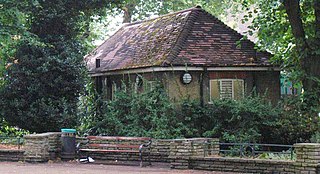
Cottaging is a gay slang term, originating from the United Kingdom, referring to anonymous sex between men in a public lavatory, or cruising for sexual partners with the intention of having sex elsewhere. The term has its roots in self-contained English toilet blocks resembling small cottages in their appearance; in the English cant language of Polari this became a double entendre by gay men referring to sexual encounters. See also gay beat in Australian English.
Cruising for sex or cruising is walking or driving about a locality, called a cruising ground, in search of a sex partner, usually of the anonymous, casual, one-time variety. The term is also used when technology is used to find casual sex, such as using an Internet site or a telephone service.
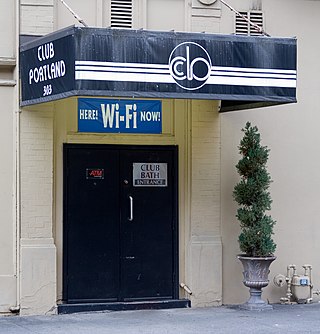
A gay bathhouse, also known as a gay sauna or a gay steambath, is a public bath targeted towards gay and bisexual men. In gay slang, a bathhouse may be called just "the baths", "the sauna", or "the tubs". Historically, they have been used for sexual activity.

OutRage! was a British political group focused on lesbian and gay rights. Founded in 1990, the organisation ran for 21 years until 2011. It described itself as "a broad based group of queers committed to radical, non-violent direct action and civil disobedience" and was formed to advocate that lesbian, gay and bisexual people have the same rights as heterosexual people, to end homophobia and to affirm the right of queer people to their "sexual freedom, choice and self-determination".

Operation Spanner was a police investigation into same-sex male sadomasochism across the United Kingdom in the late 1980s. The investigation, led by the Obscene Publications Squad of the Metropolitan Police, began in 1987 and ran for three years, during which approximately 100 gay and bisexual men were questioned by police.

Public sex is sexual activity that takes place in a public context. It refers to one or more persons performing a sex act in a public place, or in a private place that can be viewed from a public place.
Gross indecency is a crime in some parts of the English-speaking world, originally used to criminalize sexual activity between men that fell short of sodomy, which required penetration. The term was first used in British law in a statute of the British Parliament in 1885 and was carried forward in other statutes throughout the British Empire. The offence was never actually defined in any of the statutes which used it, which left the scope of the offence to be defined by court decisions.
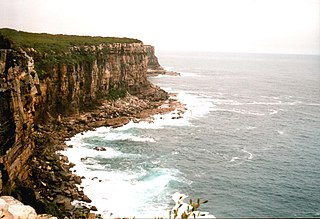
In Australia, the term beat is used to refer to an area frequented by gay men, where sexual acts occur. This use of the word parodies the beat walked by a police officer or a prostitute. Most commonly, public toilets, parks, and nightclubs are used as beats, though sometimes suburban car parks become beats after nightfall. Sex researchers have found that a considerable proportion of men who use "beats" are men who have sex with men (MSMs) rather than gay-identifying. This is possibly because, while gay men have a plethora of venues for meeting legitimately, MSMs – who are often closeted – may not wish to risk being observed in gay venues.

A glory hole is a hole in a wall or partition, often between public lavatory cubicles or sex video arcade booths and lounges, for people to engage in sexual activity or observe the person on the opposite side.

Lesbian, gay, bisexual, and transgender (LGBT) people in Nigeria face severe challenges not experienced by non-LGBT residents. LGBT rights are generally infringed upon; both male and female expressions of homosexuality are illegal in Nigeria and punishable by up to 16 years of prison in the conventional court system. There is no legal protection for LGBT rights in Nigeria—a largely conservative country of more than 225 million people, split between a mainly Muslim north and a largely Christian south. Very few LGBT persons are open about their sexual orientation, as violence against them is frequent. According to PinkNews, Nigerian authorities generally target the LGBT community. Many LGBT Nigerians are fleeing to countries with progressive law to seek protection.

Jody Dobrowski was an English 24-year-old assistant bar manager who was murdered on Clapham Common in south London. On 14 October, at around midnight, he was beaten to death with punches and kicks by two men who believed him to be gay, and pronounced dead in the early hours of 15 October. Tests carried out at St. George's Hospital in Tooting, South London revealed Dobrowski had a swollen brain, broken nose and extensive bruising to his neck, spine and groin. His family was unable to identify him due to his face being so badly disfigured and he had to be identified by fingerprints.
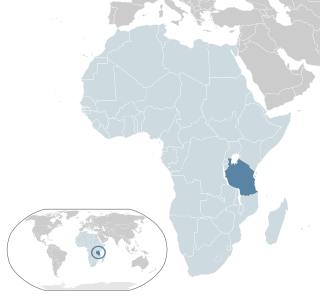
Lesbian, gay, bisexual, and transgender (LGBT) people in Tanzania face severe challenges not experienced by non-LGBT residents. Homosexuality in Tanzania is a socially taboo topic, and same-sex sexual acts are criminal offences, punishable with life imprisonment. The law also criminalises heterosexuals who engage in oral sex and anal intercourse.

Lesbian, gay, bisexual, and transgender (LGBT) people in Dominica face legal challenges not experienced by non-LGBT residents. Sodomy, also known as "buggery", is illegal for both heterosexuals and homosexuals. Dominica provides no recognition to same-sex unions, whether in the form of marriage or civil unions, and no law prohibits discrimination on the basis of sexual orientation or gender identity.

Lesbian, gay, bisexual, and transgender (LGBT) people in Zambia face significant challenges not experienced by non-LGBT residents. Same-sex sexual activity is illegal for both men and women in Zambia. Formerly a colony of the British Empire, Zambia inherited the laws and legal system of its colonial occupiers upon independence in 1964. Laws concerning homosexuality have largely remained unchanged since then, and homosexuality is covered by sodomy laws that also proscribe bestiality. Social attitudes toward LGBT people are mostly negative and coloured by perceptions that homosexuality is immoral and a form of insanity. However, in recent years, younger generations are beginning to show positive and open minded attitudes towards their LGBT peers.

A sodomy law is a law that defines certain sexual acts as crimes. The precise sexual acts meant by the term sodomy are rarely spelled out in the law but are typically understood by courts to include any sexual act deemed to be "unnatural" or "immoral". Sodomy typically includes anal sex, oral sex, manual sex, and bestiality. In practice, sodomy laws have rarely been enforced against heterosexual couples, and have mostly been used to target homosexual couples.
This is a timeline of notable events in the history of the lesbian, gay, bisexual and transgender (LGBT) community in the United Kingdom. There is evidence that LGBT activity in the United Kingdom existed as far back as the days of Celtic Britain.
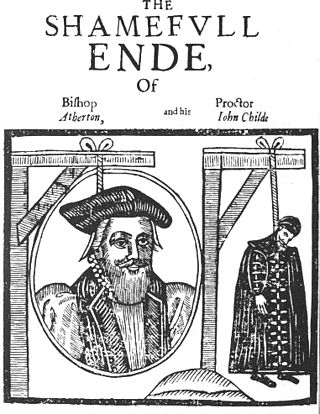
The history of violence against LGBT people in the United Kingdom is made up of assaults on gay men, lesbians, bisexual, transgender, queer and intersex individuals (LGBTQI), legal responses to such violence, and hate crime statistics in the United Kingdom. Those targeted by such violence are perceived to violate heteronormative rules and religious beliefs and contravene perceived protocols of gender and sexual roles. People who are perceived to be LGBTQI may also be targeted.

The "Alan Turing law" is an informal term for the law in the United Kingdom, contained in the Policing and Crime Act 2017, which serves as an amnesty law to pardon men who were cautioned or convicted under historical legislation that outlawed homosexual acts. The provision is named after Alan Turing, the World War II codebreaker and computing pioneer, who was convicted of gross indecency in 1952. Turing received a royal pardon posthumously in 2013. The law applies in England and Wales.
Squirt.org, launched by Pink Triangle Press in 1999, is a Canadian website which describes itself as a place "where men meet other men for sex, cruising, hookups, dating, fun and friendship". The website, based in Toronto, is available worldwide. It includes user-generated listings of parks, saunas, public toilets and popular sexual locations for men who have sex with men (MSM). It was called "unique and ideal for cruising world-wide" by the 2006 Spartacus International Gay Guide.
In early February 1873, Solomon was caught fucking George Roberts, a 60-year-old stable man, in a public toilet off Oxford Street.
Wilfred Brambell ... was conditionally discharged for a year and ordered to pay 25 guineas costs at West London Magistrates' Court yesterday for persistently importuning for an immoral purpose at Shepherds Bush Green on November 6
Peter Dudley, ... was fined £200 at Manchester City Magistrates' Court yesterday when he admitted importuning for an immoral purpose in a public lavatory
John Gielgud aged 49, described on the charge sheet as a clerk, of Cowley Street Westminster, was fined £10 at West London yesterday on a charge of persistently importuning male persons of an immoral purpose at Dudmaston Mews, Chelsea.
George Michael has admitted to "cruising" on Hampstead Heath. John O'Brien, a regular, knows the joys and pitfalls of al fresco sex
You know gay summer has officially begun when Hampstead Heath is raided again. This summer, every summer ... The weather turns nice and the wildlife, you should pardon the expression, comes out. Hampstead locals taking their progeny for a little sun and air find both heels and buggy wheels sticking to discarded condoms and empty tubs of Crisco - those traditional, tell-tale signs that you have fairies at the bottom of your communal garden. Night and day, but especially night, there's the cackle of mating calls, beating-off around the bushes and a constant stream of furtive trade riding through the glen, occasionally stopping, the little Tinkerbells – so residents claim – to light a fire and verbally abuse those vicious homophobes who have the nerve to object. "I say, would you chaps mind awfully ..." when they turn a corner of woodland to find the Bum Boy Three going at it like the clappers against a mighty oak.
George Michael has said he is to take legal action against a man who claimed he had a gay encounter with the singer.
Mr Amos resigned his seat after he was found by the police allegedly engaging in a homosexual act on Hampstead Heath.
As he made his way home from visiting a friend, Mr Dobrowski was kicked and punched to death on the edge of a well-known gay cruising area on Clapham Common. Scotland Yard said yesterday the violence was so extreme that his killers had no use for a weapon. Fists and feet, rather than a club or knife, were enough to inflict the injuries to the head, neck and chest from which Mr Dobrowski died in hospital at 10.30am on Saturday.
The drama set for the most publicity is Clapham Junction, about a disparate group of gay men whose lives cross one day after a civil commitment ceremony. They are all in some way compromised by their sexuality: they go to Hampstead Heath, Clapham Common and public lavatories for sex.